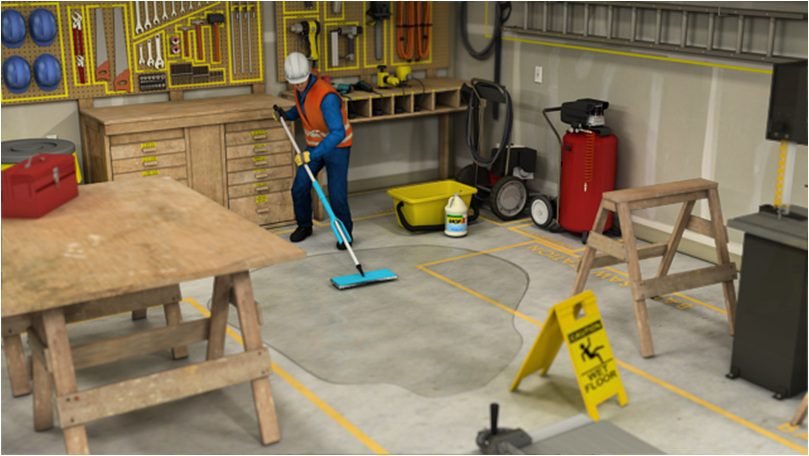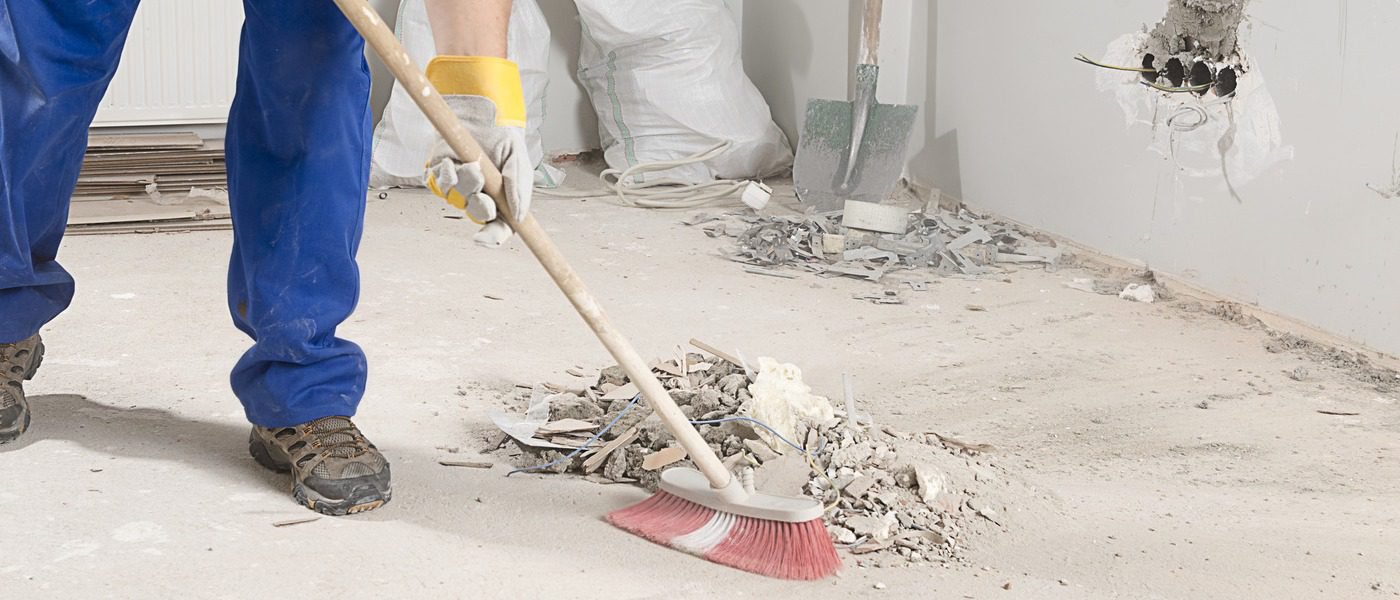
What Is Good Housekeeping On A Construction Project?
Effective housekeeping helps eliminate hazards in the workplace and helps to get the job done properly. Housekeeping is more than just cleanliness. You should keep the work areas neat and orderly. It should be ongoing and not just an occasional thing. Poor housekeeping can result in workplace accidents slowing down work and contributing to staff injuries.
Table of Contents
ToggleDifferent Types Of Hazards On Worksites
- Tripping and falling – This happens when there are things on the floor that actually don’t belong there such as tools, machines, air hoses, boxes, and scraps.
Don’t keep unnecessary things on the floor to prevent tripping and falling hazards.
- Impact and contact hazards – These are objects that you can bump into or that can hit you.
- Puncture and splinter hazards – This happens when pointed or sharp-edged tools are left exposed.
- Electrical hazards – Cords left near the heat or water, extension cords, and overloaded circuits can result in electrical hazards.

The Importance Of Good Housekeeping
Poor housekeeping may result in accidents like tripping over loose objects on the floor, stairs and platforms being hit by falling objects.
Wet and dirty floors that can lead to slipping, striking against poorly stacked items, cutting, puncturing, and tearing the skin of hands on wire or steel strapping.
For example, bulldozers, tractors, and diggers all require regular inspection and upkeep to continue operating at peak performance.
Finding a reliable source for a replacement for your Kubota parts is particularly vital.
Effective Housekeeping Will Result In:
- Easing of the flow of materials
- Reduced handling
- Fewer tripping and slipping accidents
- Clutter-free work areas
- Fewer fire hazards
- Lower worker exposure to vapour and dust
- Better control of tools
- Efficient equipment clean-up and maintenance
- Better hygiene for improved health
- More effective use of space
- Improving maintenance to reduce property damage
- Reduced janitorial work
- Improved morale
- Improved productivity
Who Will Be Responsible For Good Housekeeping?
Good housekeeping is the responsibility of everyone starting from the job supervisor to the leading hand. In fact, it’s every individual worker’s responsibility. Good housekeeping should occur every day. It should be a constant and ongoing process in order to prevent and eliminate hazards in the work area. You should work smarter and not harder. At the beginning of the day, you should use or remove gear that is in the way. This may make your mornings difficult but the afternoons much easier. At the end of the day, clean and clear the worksite. Make sure to neatly palletised all loose gear that isn’t required for the day.
Remove all gear from the walkways or footpaths. If you have to move another tradesperson’s gear, make sure you do it carefully. Keep all the entries, exits, and fire exits clear at all times. No gear or material should block the access to fire exists or equipment. Make sure to report loose boards, holes, and other flooring problems so that they are fixed before someone trips and gets hurt. Throw away the trash properly and promptly. When handing over scaffolds, make sure the gear is consolidated and out of harm’s way. Prior to leaving the worksite for the day, make sure you do an inspection to ensure the site is clean and tidy. These are some of the most important things to consider in order to implement good housekeeping on a construction project. This will go a long way towards preventing accidents and injuries.
If you are looking for knowledgeable and experienced scaffolders, who have leading-hands that work together with you and offer expert advice, please contact us at Skelscaff today on 1300 266 607 or email us at contact@skelscaff.com.au.





